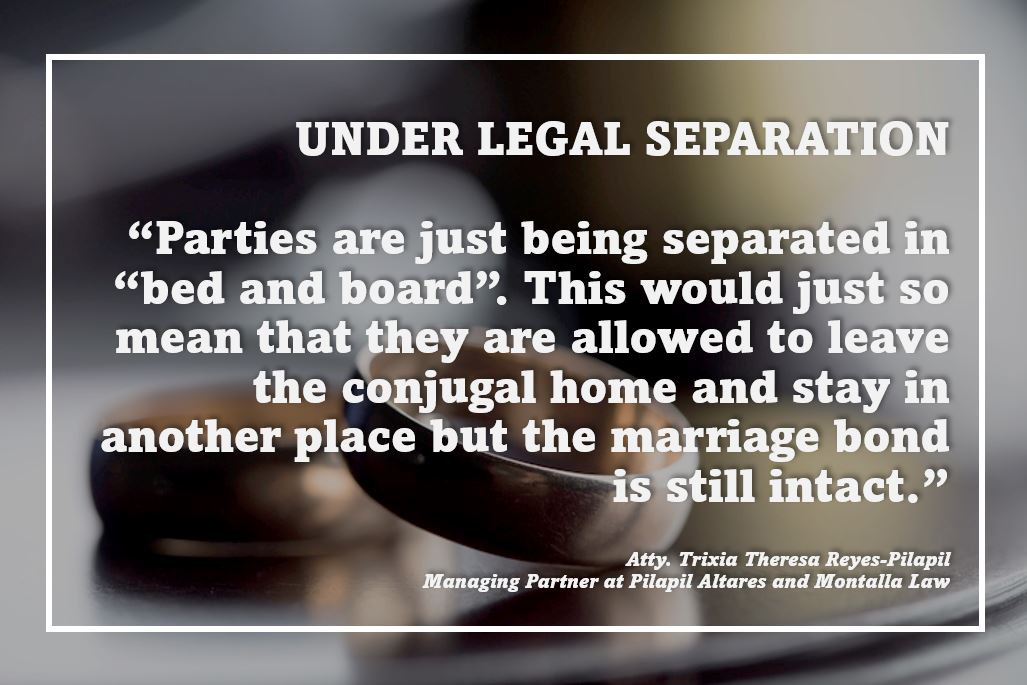When the pandemic struck in 2020 and triggered one of the worst job crises since the Great Depression, “Irma”, a Sharjah-based Filipina was among hundreds of thousands of overseas Filipino workers (OFWs) who had been laid off.
Her job as a hotel manager ended in June, during which the hospitality sector seemed to have been waning as the pandemic shook tourism particularly hard.
While she was already dealing with the financial strain of losing her job, her world was shaken after hearing the news from her family that her husband “Jay” was making their condominium unit in Las Piñas a den of an illicit affair with another woman.
The couple met in Dubai in 2013 where the latter worked as a sous chef before deciding to come home for good in 2019. They married in 2016.
She kept her agony in silence for a couple of weeks until she found the courage to come to grips with Jay.

Irma said: “The hardest part was to open a conversation about it. The hardest part was asking the first question that would lead us to the topic. But I had no choice other than to face that fear.
“I asked him ‘May babae ka raw’. Then there was complete silence. I never anticipated that he would easily admit it, but that’s what happened.
“When we said our vows that we’ll be together till the end, I held on to that promise. And there can be no other word more painful than hearing your husband say ‘I’m leaving you now’ because he wants to be with another woman. It still haunts me till this day.”
Months after, Irma decided to contact Jay again. This time, it’s about the condominium unit she worked hard for years in the UAE.
“He was determined not to leave that place all because he believes he shares a portion of anything that’s mine even if he didn’t spend a single centavo to acquire it,” Irma said.
In February next year, Irma is planning to fly home to seek nullity of her marriage to Jay, and fight for what she believes is rightfully hers.
The Philippines is the only country in the world other than Vatican City where divorce is not legal. Even long-dead marriages in this country, where the church wields enormous social and political influence, can only be separated practically through death, or the torturous process of nullity of marriage.
There’s a dearth of data pertaining to the number of OFWs seeking to nullify their marriages. However, a study by Jose Rizal University on the impact of the OFW phenomenon on Filipino families said that 1 out of 4 OFW spouses separate.
In general, there’s a rising trend in the number of Filipino couples wanting to end their marriages. The Office of the Solicitor General recorded 87,236 nullity cases filed from 2008 to 2017 with psychological incapacity as the most common ground. From only 1,094 cases in 2008, nullity cases have since jumped to an average of 8,000 cases per year until 2017.
The price of moving on
Atty. Trixia Theresa Reyes-Pilapil, Managing Partner at Pilapil Altares and Montalla Law, said that most of her OFW clients have the same case as Irma.
“Yes, they are many of them. They wanted to cut the marriage bond not necessarily because they have new partners already but because they wanted to secure their hard-earned monies, investments, and properties,” said Reyes-Pilapil.

Several of these OFWs had purchased tangible investments such as a condo or house and lot, and are wary that their husband might claim it as their own.
“It is but normal that the OFW will eventually own a condominium unit or a parcel of lot in the Philippines as preparation for future retirement. If the marriage is considered null and void from the beginning, the other spouse will no longer have a share over the future investments of the female OFW,” explained Reyes-Pilapil.
A dragging process
Most petitions are filed on the grounds that their spouses are psychologically incapacitated.
“Psychological incapacity is a serious psychological disorder it does not necessarily mean that the Respondent is suffering from insanity. There is a need to prove that the Respondent (abusive spouse) is unable to fulfil the basic marital obligations, that is, to observe mutual love and respect, among others,” Reyes-Pilapil said.

“In my practice, two years is the shortest,” Reyes-Pilapil said. “As to cost, Php200,000 to Php400,000 depending on the circumstances. More hearing dates and more pleadings to be filed would mean more charges for the counsels to bill.”
She added that lawyers often suggest women to get the services of a licensed clinical psychologist/registered psychologist/registered psychometrician who will testify before the courts and present his/her findings as an expert to provide reasons regarding the root cause of the psychological incapacity of the husband.
The lawyer sees at least three factors as to why cases for nullity of marriage take a while to process in the Philippines.
“First, our Philippine Constitution embodies a pro-family setting thus seeing marriage as an inviolable social institution. Second, the procedure calls for the preparation of the necessary Judicial Affidavits of the witnesses of the Petitioner. It means that the Petitioner should be prepared with the testimonies of his/her witnesses at the time of filing of the Petition. The Petition is the initiatory pleading that is to be prepared with the assistance of the counsel,” said Atty. Reyes-Pilapil
“Lastly, the court’s calendar cannot accommodate a weekly hearing. We understand that Philippine courts are loaded with cases to be heard and it is normal for us to have an interval of one to two months before the next setting,” she added.
A grim scenario
The lack of divorce legislation in the Philippines puts women in a grim scenario.
The majority of women in the country relies on their spouses financially, forcing many of them to stay in abusive marriage. This is complicated by the hefty price tag on seeking nullity of marriage, or legal separation.
Based on data from the World Bank, unequal participation of men and women in the workforce is glaring. Women who represent nearly half of the population are only 38.9 percent of the labor force in 2020.
For wives in abusive relationships, the lawyer stressed: “If that is the case, you have the duty to do what is necessary. Assert your rights.”

“You are not a tree, you can always move. If respect is no longer being served on your table, better leave. Otherwise, you will miss your second chance in this one lifetime,” advised Atty. Reyes-Pilapil.
Don’t let this happen to you
Statistics from the National Demographic and Health Survey conducted by the Philippine Statistics Authority in 2017 showed that one in four Filipino women aged 15-49 suffer from physical, sexual, or emotional violence from their husband or partner.
Incidentally, the agony of female OFWs in abusive marriages becomes even more dreadful with reports of a number of female OFWs being battered, others were beaten to death behind closed doors after coming home.
In September 2018, the Filipino community in the UAE mourned the death of their kababayan who went home to visit her children.
What should have been a warm homecoming turned tragic when her husband suddenly stabbed her to death, according to a report of The Filipino Times.
The incident happened in Isabela, Negros Occidental. Her husband was charged with parricide.
According to the police, the OFW, identified only as Angela, had already been experiencing domestic abuse even before she accepted the work stint in Dubai.
The following year, in June 2020, a 39-year-old Filipina overseas worker who had just arrived home was killed by her estranged husband in Lebak, Sultan Kudarat.
The family told a report of The Filipino Times that the OFW went to the house of her husband to see her four children and seek her children’s custody.
“Dahil hiwalay na sila, kaya kinukuha ng kapatid ko ang mga anak nya. Pero ayaw nya dahil mawawalan sya (asawang lalaki) ng sustento,” a family member of the OFW told TFT.
She added, “Hanggang nag-away sila. My sister tried to escape pero inabutan sya. Pinagsasaksak sya ng limang beses sa likod at ibang parte ng katawan.”
The police found the OFW lying dead in the backyard.
Legal separation vs Nullity of Marriage
Atty. Reyes-Pilapil further explained that couples who are only under ‘legal separation’ are still tied to each other as the marriage bond persists.

She explained that under legal separation, “Parties are just being separated in “bed and board”. This would just so mean that they are allowed to leave the conjugal home and stay in another place but the marriage bond is still intact.”
The lawyer also warned that those under legal separation who were found to have married another person may face criminal charges for bigamy.
“The law prohibits them from marrying another. The law sees it illegal if the separated spouse will maintain another relationship outside of the marriage. If that is the case, the erring spouse may face criminal charges like violation of Republic Act No. 9262 or Bigamy, if he/she contacted another marriage,” she added.
Meanwhile, nullity of marriage will render that marriage bond null and void which not only allows women and their former spouse to re-marry, their property relationship will also be deemed to have ended once the case closes.
“Either of the spouses may purchase a property or invest in stocks without worrying that his/her ex-spouse will have a fair share in the future. Considering that the expenses for legal separation and nullity of marriage are almost the same, the concerned party may choose which will fit his/her objective. If he/she wishes to re-marry, legal separation is not the answer,” explained Reyes-Pilapil.
Miles away from divorce law
In August 2021, the House Panel Committee on Population and Family Relations unanimously approved the substitute bill to the proposed Absolute Divorce Law.
Once approved and passed into law, grounds for divorce will be as follows:
– Separation in fact for at least five years at the time the petition for absolute divorce is filed;
– When one of the spouses undergoes a gender reassignment surgery or transitions from one sex to another;
– Irreconcilable marital differences as defined in the bill;
– Domestic or marital abuse;
– Valid foreign divorce secured by either the alien or Filipino spouse; and;
– A marriage nullified by a recognized religious tribunal
However, Atty. Reyes-Pilapil shared that this isn’t a new phase for the divorce bill as it had been a highly controversial topic, with many socio-civic groups opposing the passage of the law.
“It is undeniable that most estranged couples find hopes from this bill. However, owing to the fact that our Philippine Constitution clearly provides that the State recognizes Filipino family as the foundation of the nation, and that marriage, being an inviolable social institution, is the foundation of the family, we are still miles away to reach its final pace,” said Atty. Reyes-Pilapil.
She said that there’s a prevailing mentality in the Filipino culture that broken families end up having broken lives as well.
“For me, majority of the Filipino families is not yet ready to embrace the idea. I would suggest that socio-economic and civic groups should hold seminars and talks about the pros and cons of divorce so that the public may know how would it eventually affect their lives,” said Atty. Reyes-Pilapil.




